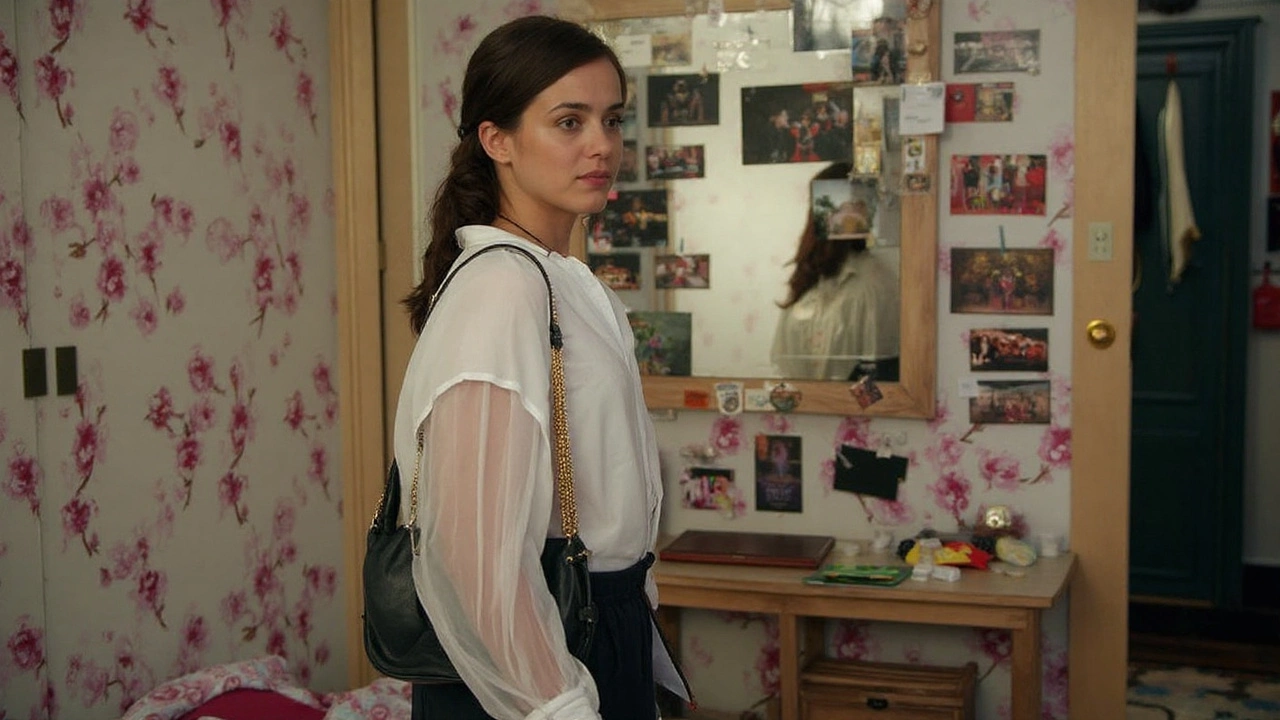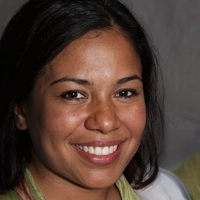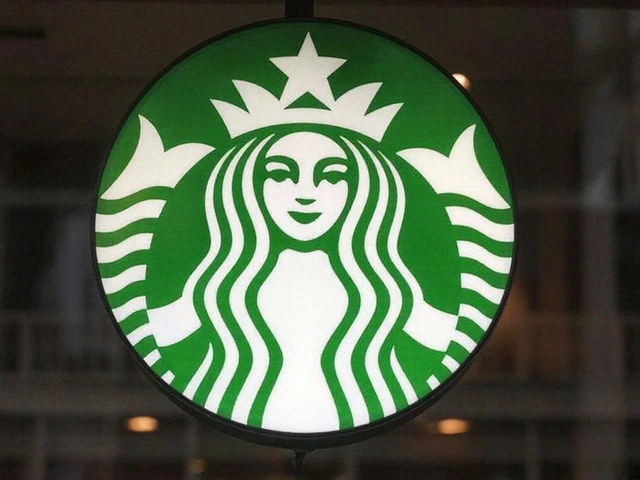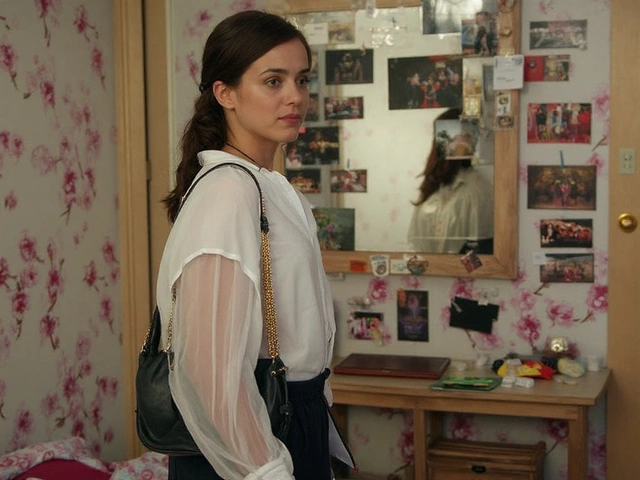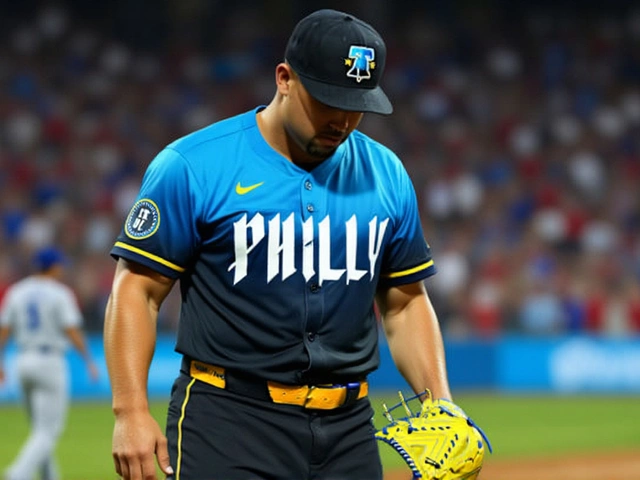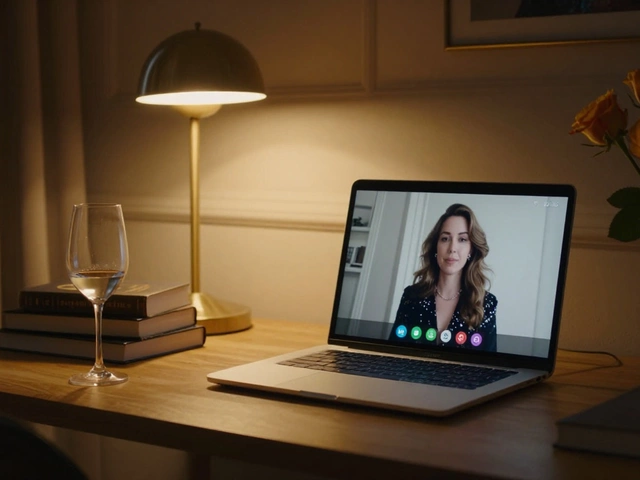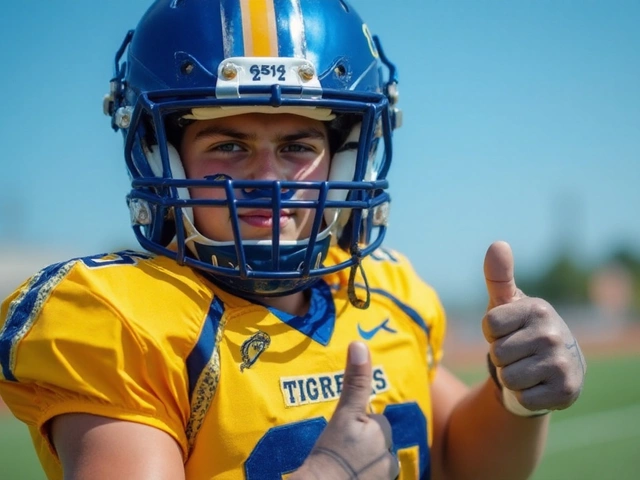The final twist: a smiling bride, a hidden phone, and the truth about Cherry
Prime Video’s domestic thriller builds to a quiet, brutal punchline. A happy garden scene. A pregnant wife. A grieving son trying to move on. Then the family cat paws at something wedged under a table: Laura’s phone, forgotten since the night she died. When Daniel charges it and hits play, he hears a warning his mother fought to prove—Cherry doesn’t just get what she wants; she clears the board of anyone in her way.
That single recording reframes every smile and every promise leading up to the The Girlfriend ending. It’s not just that Laura dies. It’s how the show tells you, in the quietest way possible, that Cherry’s spotless new life—married to Daniel, pregnant, folded into his wealthy family—was built on a pattern of manipulation and erasure. Daniel finally connects the dots his mother saw months earlier. The camera cuts to Cherry, smiling back through the glass. He’s trapped, and he knows it.
Across six episodes, the series pairs Robin Wright’s Laura—a fiercely protective mother—with Olivia Cooke’s Cherry, a savvy striver whose charm plays as both survival skill and weapon. Laurie Davidson’s Daniel lands in the crossfire, too in love or too naive to sense the danger gathering in his own home. The show doesn’t rush the collision. It lets suspicion harden into obsession, and obsession harden into a court case of clues Laura can’t stop assembling.
Those clues aren’t vague. Cherry claims her father is dead. He isn’t. He’s alive, disabled, and housed in a care home after a fall from several stories up. When Laura visits, the man grows panicked at the sound of his daughter’s name. The series doesn’t say the word murder. It doesn’t have to. Later, Cherry admits she pushed him and shrugs it off as deserved. It’s the cleanest line in the whole show: the line between what Cherry wants and what you’re worth if you stand in her way.
Laura keeps digging. She tracks down Cherry’s mother, Tracey, and records their tense conversation. Tracey’s picture of her daughter is blunt—if Cherry wants something, nothing stops her. Playground grudges. Teenage payback. Broken men. The list is less a history than a pattern, the kind that repeats itself unless somebody breaks it. Laura realizes that “somebody” is going to have to be her.
That’s what gets her killed. The final fight is ugly and fast. Cherry lunges first, trying to drown Laura. Laura claws her way out and briefly turns the tide. But violence is sloppy, and the struggle flips again. Laura dies not because she’s reckless, but because she refuses to stop. She’s the only person in the room who sees the full picture and keeps going anyway. The series treats her death as both accident and consequence, but it doesn’t pretend the outcome is random. Without Cherry’s attack, there’s no body.
Then comes the flash-forward. Time softens the edges. Cherry now wears the life she chased—wedding band, bump, bright afternoon with Daniel’s father, Howard. Daniel plays the dutiful host, carrying drinks, smiling on cue. The scene is almost boring. That’s the point. Danger in this story isn’t loud. It’s well dressed and good at small talk. Only when Daniel hears the recording of Tracey’s warning—“She’ll want something you’re not prepared to give, then she’ll find a way to get rid of you”—does the mask slip. He looks up. Cherry meets his gaze and beams.
So who dies? Laura. But the show doesn’t position her as a casualty of jealousy. It frames her as the last obstacle in a long line—an obstacle who finally figured out how Cherry operates. The tragedy is timing. The truth arrives after the wedding vows, after the pregnancy, after the power has quietly shifted away from Daniel and his father and into Cherry’s hands.
Themes of control and class run under every scene. Cherry wants in—into a stable family, into money, into status—and she won’t apologize for the hustle. The series asks a tighter question: what happens when hustle turns predatory? When ambition flips into elimination? Laura’s fear is loaded with class bias and snobbery, sure, but the evidence she collects is not. The care-home visit. Tracey’s taped confession. Cherry’s own admission. The show makes it hard to hide behind “misunderstanding.”
Olivia Cooke plays Cherry with a sharp edge—warmth that turns on like a switch and clicks off just as fast. Robin Wright gives Laura a stubborn gravity, the kind that makes even her mistakes feel human. Laurie Davidson’s Daniel is the point-of-view we dread inhabiting: loving, blind, and suddenly awake. By the finale, the triangle is less a romance than a power diagram, and only one person understands all the angles.
Is Cherry a murderer? The series avoids labels and sticks to behavior. She pushes her father and calls it justice. She lies about his death, then uses the lie to tidy up her story for Daniel. When cornered by Laura, she chooses violence. Later, in the garden, she doesn’t look scared that Daniel knows—she looks confident she’s already two moves ahead. That’s the kind of villainy domestic thrillers excel at: not cartoon evil, but cool calculus.
Daniel’s realization lands with a thud because there’s nowhere safe to go. He’s married. She’s pregnant. His father likes her. And Laura—the only person who could have backed him up—is gone. This is why the phone matters. It isn’t a haunted object; it’s a witness. In a show filled with whispers, the recording is hard proof that the danger isn’t in Daniel’s head. It’s sitting on the patio, smiling at him.
What the show changes from the book
The series adapts Michelle Frances’s 2017 bestseller, but it leans into darker, cleaner lines. On screen, Cherry’s violent past is brought into sharp focus with the care-home thread and her blunt confession about the fall. The finale then goes further, turning the mother–girlfriend rivalry into a fatal clash and using a flash-forward to show Cherry embedded in the family with a pregnancy and a wedding ring.
The novel and the show share the core setup—an overprotective mother, a charismatic girlfriend, a son caught between love and loyalty—but the Prime Video version favors a decisive final beat. Instead of ending on an uneasy stalemate, the adaptation delivers a body and a clear shift in power to Cherry. The series also adds a visual, TV-friendly device: the recovered phone with a recorded confession, which lets Daniel learn the truth without an exposition dump or a courtroom showdown.
There are tonal differences too. The book plays as psychological cat-and-mouse, often filtered through Laura’s suspicions. The show broadens perspective, giving Cherry more space and backstory, and pushes the plot toward a thriller payoff. It streamlines the timeline into six tight episodes, condensing the slow creep of mistrust into a concentrated sprint that makes the final act feel inevitable.
If you’re a reader first, you’ll notice how the adaptation makes Cherry’s danger explicit and frames Laura’s death as the price of pursuing the truth. If you’re coming in cold, the last shot does the job on its own: a man who finally understands the woman he married and realizes knowledge doesn’t equal escape.
One more shift worth noting is how the series treats motherhood on both sides. Laura’s protectiveness is flawed but recognizable—protect your child at any cost. Cherry’s pregnancy, meanwhile, isn’t framed as pure joy or pure manipulation; it’s leverage inside a story about power. That framing is more blunt on TV than on the page, where ambiguity can linger longer.
However you slice it, the adaptation chooses certainty where the book often cultivated doubt. The end result is a finale that leaves you with a simple, queasy truth: sometimes the person smiling at you from the garden is the danger, and by the time you figure it out, they’ve already moved in.
